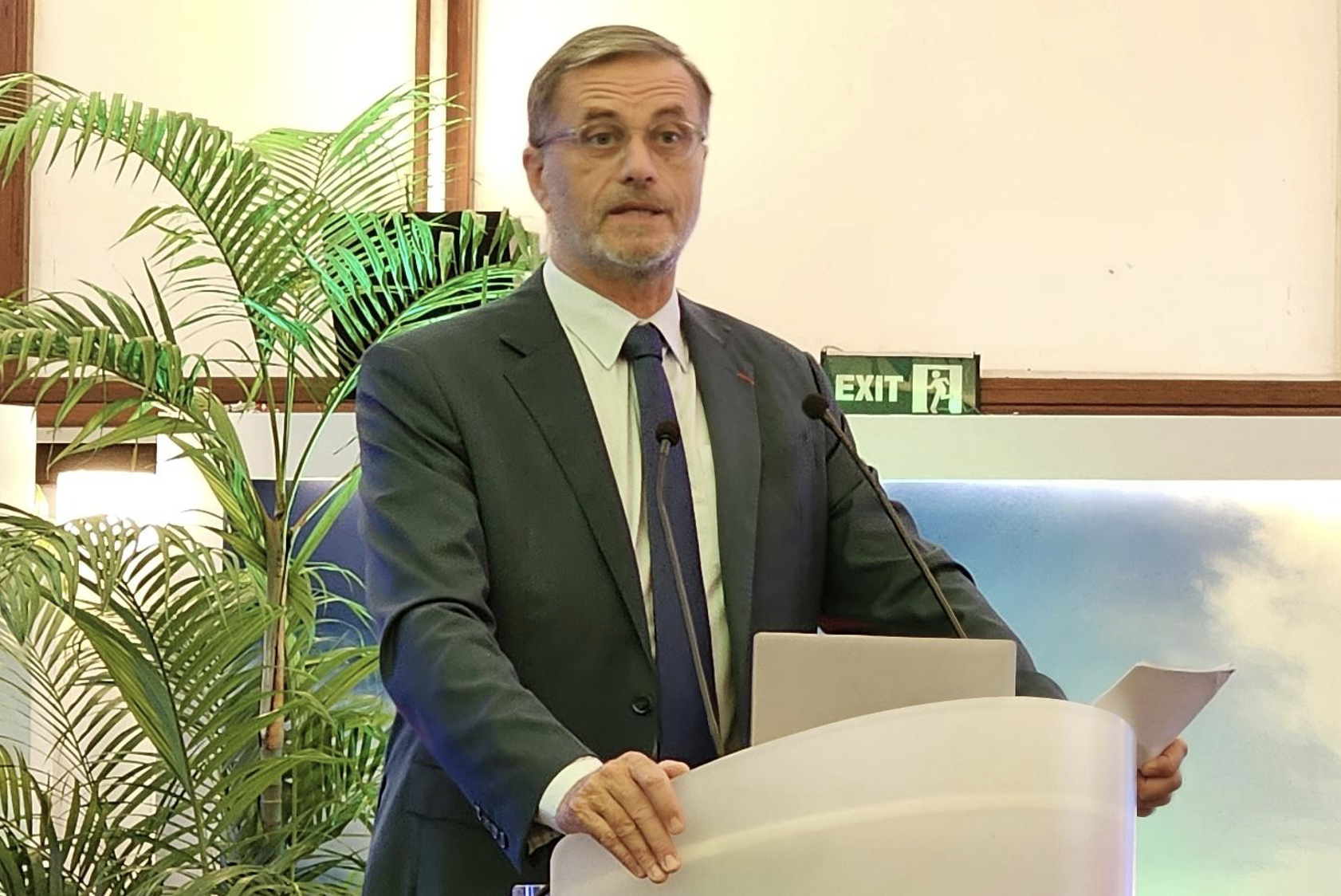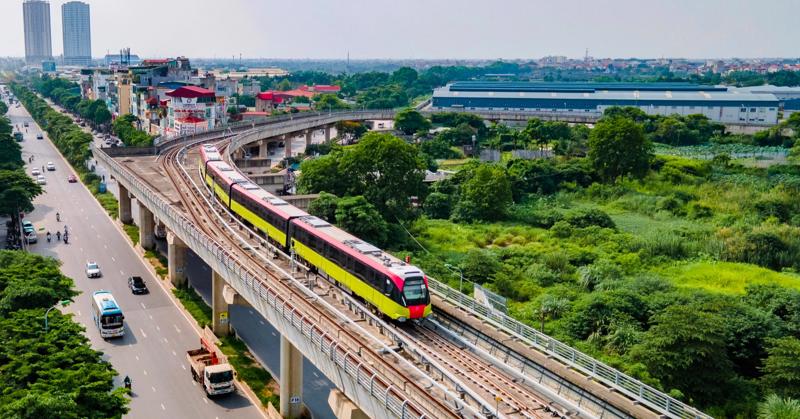In a resounding testament to its early success, the elevated section of Hanoi’s Metro Line No. 3 ferried 1 million passengers in its first month of operation, H.E. Olivier Brochet, French Ambassador to Vietnam, announced on September 11. This achievement underscores the growing appetite for efficient and eco-friendly public transport solutions in Vietnam’s bustling capital.

The Ambassador’s remarks came during a press conference at the French Embassy marking the one-month official review of the elevated segment of the Metro Line, which also served as a platform to highlight the robust Franco-Vietnamese partnership in sustainable urban mobility and showcase French expertise in the railway sector.
“The inauguration of the elevated section of Hanoi Metro Line No. 3, the second line to become operational in Vietnam, is a testament to the capabilities of the Franco-Vietnamese teams in successfully implementing ambitious infrastructure projects in the rail transport sector,” Ambassador Brochet said. “It also reflects France’s commitment to supporting Vietnam in its transition towards a low-carbon economy, particularly through the provision of technical solutions that meet the highest international standards.”
The 8-km elevated stretch, connecting Nhon and Cau Giay, commenced commercial operations on August 8. It features eight stations and offers a green and efficient alternative to Hanoi’s congested roads. The remaining underground section, with four additional stations leading to Hanoi Railway Station, is slated for completion by the end of 2027.
The project has received substantial financial backing from France, with the French Treasury and the French development agency AFD providing concessional loans totaling €355 million ($391 million) and €159 million ($175 million), respectively. The Asian Development Bank and the European Investment Bank also contributed to the funding.
Leading French companies, including Alstom, Thales, and Colas Rail, have played pivotal roles in the project, supplying rolling stock, signaling systems, tracks, and electromechanical equipment. RATP Smart Systems provided the ticketing system, while Systra supported the Hanoi Metropolitan Railway Management Board (MRB) as the general consultant.
The successful launch of the elevated section not only demonstrates the feasibility of complex and ambitious urban transport projects in Vietnam but also symbolizes France’s dedication to assisting Vietnam in addressing climate change through the implementation of world-class technical solutions.
Plans are already underway to extend Metro Line No. 3 further underground, adding another 8 km beneath Tran Hung Dao Street and southwards to Hoang Mai. This extension will receive financial support from European donors, including AFD and the European Investment Bank as well as the Asian Development Bank.
Building on the valuable experience gained from Line No. 3, French companies are eager to contribute to Vietnam’s ongoing rail transport projects, promoting low-carbon transportation solutions and further solidifying the Franco-Vietnamese partnership in sustainable urban development.









 Google translate
Google translate